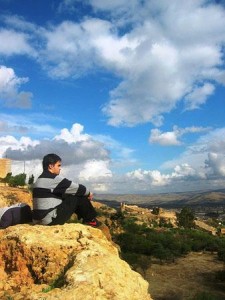 Ecotourism is a serious buzzword in travel these days but what does it actually mean to travel eco-responsibly and to experience an eco tour in Morocco?
Ecotourism is a serious buzzword in travel these days but what does it actually mean to travel eco-responsibly and to experience an eco tour in Morocco?
According to the International Ecotourism Society, “ecotourism is responsible travel to natural areas that conserves the environment and improves the well being of local people.”
Based on this definition, ecotourism isn’t just about visiting beautiful natural areas; it is about making a positive impact to the area traveled.
As you prepare for your time on a trip in Morocco, here are five ways you can ensure that your trip will benefit the environment and its local people.
1. Respect the Environment
Morocco, with its mountains, valleys, gorges, deserts, plains, beaches and forests, is a land of immense and diverse natural beauty. The land is perfect for trekking trips but it is important to follow Leave No Trace ethics to respect both the land and the people that live there.
Always remember that if you pack it in you need to pack it out. Consider bringing your own water filter and bottle to reduce the need for plastic water bottles, which only contributes to waste problems in Morocco. If you need to wash yourself, clothes or dishes make sure you are at least 200 feet away from rivers or lakes and use only biodegradable soap. Every small act of conversation goes a long way in preserving Morocco’s unique ecosystems.
2. Participate in a Volunteer Project
Consider spending a few days of your vacation volunteering with a local organization. You could volunteer to teach English, spend time with children in an orphanage, lend your hand in a community development project or even work on an organic farm.
3. Buy Local
Volunteer vacations are certainly not for everyone but you can still make an impact in the local economy by the choices you make. Choose to stay at locally owned lodges or bed-and-breakfasts rather than big name chain hotels. Indulge in regional foods and purchase locally made gifts so your dollars may support the local people. Always steer clear from any goods that have been made from protected or endangered animals.
4. Do Your Research about Companies Offering Eco-Tours
Since there is no regulation on the use of the word ecotourism in Morocco’s tourism sector, some companies who are touting eco-tours can actually be environmentally destructive. Off-road vehicle trips and wildlife theme parks can easily classify themselves as ecotourism yet be detrimental to the environment.
Before booking a tour ask the company about their social and environmental practices. Ask questions such as: What percentage of your employees are local citizens? What sustainable principles do you follow? Does your company support any community sustainability projects? How do you ensure minimal impact to the environment during your tour? Have you won any eco-awards? Use these factors to help you decide on a tour that is environmentally sound.
5. Make Sure Your Eco-Lodge is Not “Greenwashing” You
Eco-lodges can be amazing businesses that are dedicated to conversation and interested in benefiting the local people. Sadly, many lodges use the term “eco” to simply benefit from the travel trend with little regard for the destination itself.
Before booking your stay at an eco-lodge peruse the company’s website or give call to find out what the lodge does specifically to help protect the environment and promote conservation. Do they work with any local charities? Can they help you get involved in a local volunteer project? What percent of their goods and services come from within the community? You may even want to ask how they treat their wastewater and where they get their energy.
By choosing environmentally responsible travel you can have both the Moroccan vacation of your dreams and the reward of knowing you had a positive impact on the community
Note: Journey Beyond Travel is among those companies that considers itself eco-friendly. We have a staff that lives and works in Morocco. A percentage of every tour is contributed toward local sustainable development projects. In addition, our website is hosted on servers run on wind power credits. If you have any questions about our commitment to the environment and the local culture, please don’t hesitate to contact us for more information.
Written by Amiee Maxwell.
Photo by kyle simourd.

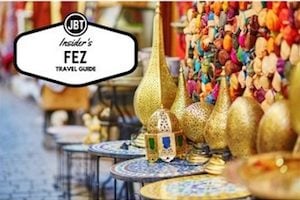

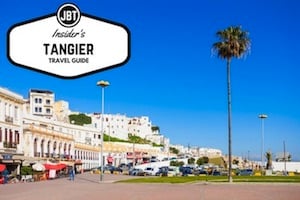
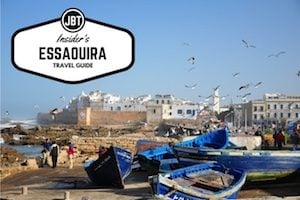
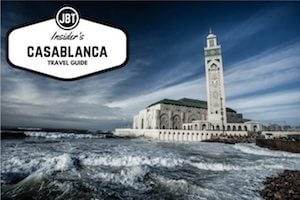

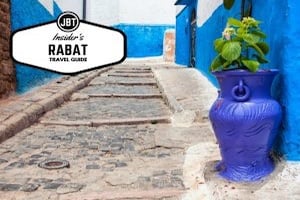
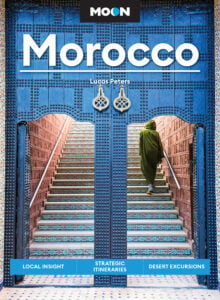
Eco- tourism good destinationa and sites must not heavily puplicizd, otherwise they could n’t be protected